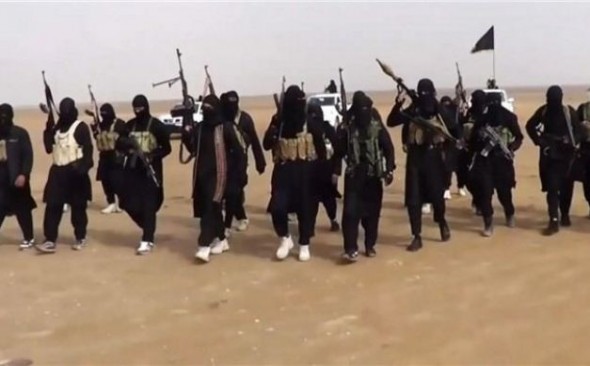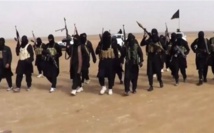"Daesh took control of the defence lines in Husaybah al-Sharkiya, where the security forces were supposed to launch their operations to liberate Ramadi," a police colonel said.
Daesh is an Arab acronym for the IS, which scored its biggest victory in Iraq in almost a year when it took over Ramadi on Sunday.
He said the positions lost on Thursday were meant to protect Khaldiyah, Habbaniyah and a major nearby military base.
"Daesh was able to penetrate 500 metres (yards) into the area. There are fierce clashes between the security forces and the attackers," the police officer said, speaking on condition of anonymity.
Rafia Abdelkarim al-Fahdawi, a local tribal leader, confirmed that the government defence positions in Husaybah had been lost and said the jihadists now threatened to take the entire area.
"We fear there might be a massacre of the sons of the Albu Fahd tribe if Daesh takes full control," said Fahdawi, whose tribe has been fighting alongside the government against IS.
Prime Minister Haider al-Abadi called in the Popular Mobilisation (Hashed al-Shaabi) forces, an umbrella organisation mostly of Shiite militias and volunteers, after Ramadi fell.
Reinforcements have arrived at Habbaniyah and other locations in Anbar but no operation to retake Ramadi -- 100 kilometres (60 miles) west of Baghdad -- has yet begun in earnest.
A swift counter-attack is key to preventing IS from planting explosive devices across Ramadi, which would make a government advance more risky and complicated.
Michael Knights, of the Washington Institute think tank, also said the government and its allies should waste no time in putting IS on the back foot in Ramadi to deny it more control of eastern Anbar.
"The Iraqi government needs to put ISIS on the defensive in eastern Anbar before Ramadan begins in mid-June, when the terrorist movement will no doubt try to surge attacks against Shiite religious and civilian targets in Baghdad and the shrine city of Karbala," he said.
IS already controls most of Anbar, a vast province which stretches from the Saudi, Jordan and Syria borders all the way east to the outskirts of Baghdad.
--------------------------------------------------------------------------------------------------------------------------
Daesh is an Arab acronym for the IS, which scored its biggest victory in Iraq in almost a year when it took over Ramadi on Sunday.
He said the positions lost on Thursday were meant to protect Khaldiyah, Habbaniyah and a major nearby military base.
"Daesh was able to penetrate 500 metres (yards) into the area. There are fierce clashes between the security forces and the attackers," the police officer said, speaking on condition of anonymity.
Rafia Abdelkarim al-Fahdawi, a local tribal leader, confirmed that the government defence positions in Husaybah had been lost and said the jihadists now threatened to take the entire area.
"We fear there might be a massacre of the sons of the Albu Fahd tribe if Daesh takes full control," said Fahdawi, whose tribe has been fighting alongside the government against IS.
Prime Minister Haider al-Abadi called in the Popular Mobilisation (Hashed al-Shaabi) forces, an umbrella organisation mostly of Shiite militias and volunteers, after Ramadi fell.
Reinforcements have arrived at Habbaniyah and other locations in Anbar but no operation to retake Ramadi -- 100 kilometres (60 miles) west of Baghdad -- has yet begun in earnest.
A swift counter-attack is key to preventing IS from planting explosive devices across Ramadi, which would make a government advance more risky and complicated.
Michael Knights, of the Washington Institute think tank, also said the government and its allies should waste no time in putting IS on the back foot in Ramadi to deny it more control of eastern Anbar.
"The Iraqi government needs to put ISIS on the defensive in eastern Anbar before Ramadan begins in mid-June, when the terrorist movement will no doubt try to surge attacks against Shiite religious and civilian targets in Baghdad and the shrine city of Karbala," he said.
IS already controls most of Anbar, a vast province which stretches from the Saudi, Jordan and Syria borders all the way east to the outskirts of Baghdad.
--------------------------------------------------------------------------------------------------------------------------









 Home
Home Politics
Politics











